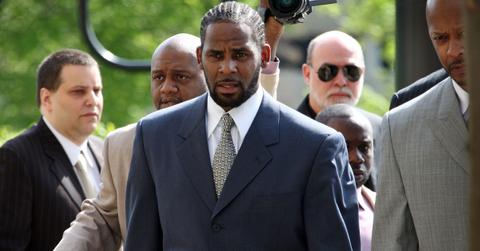R. Kelly Is Looking to Overturn His Conviction, Citing a Statute of Limitations Violation
R. Kelly's lawyer is arguing that a law passed to protect victims of child sex crimes can't be applied to her client.
Published July 30 2024, 12:10 p.m. ET

As of the time of this writing, Robert Sylvester Kelly, aka R. Kelly, is incarcerated at FCI Butner Medium I, a medium-security prison located in Butner, N.C. He is scheduled to be released on Dec. 21, 2045, at which point he will be 79 years old. The former R&B singer was found guilty of six counts of "child pornography and child enticement for videos he made of himself sexually abusing three teenage girls," per CBS News.
Since then, he has been trying to overturn his conviction to no avail. Kelly is now heading for the Supreme Court with his latest appeal attempt. Could this be a get-out-of-jail-free card for the "Ignition" singer? Here's what we know.

R. Kelly's Supreme Court appeal claims his rights were violated.
In April 2024, a federal appeals court ruled to uphold Kelly's September 2022 conviction for federal sex crimes which got him a 20-year prison sentence in the state of Illinois. It's running concurrently with a New York conviction in September 2021. The latter was for racketeering as well as the sexual exploitation of children, for which he was handed a sentence of 30 years, per the Department of Justice.
According to TMZ, he is now asking the United States Supreme Court to throw out his "convictions for possession of child porn and inducing minors to have sex — claiming his alleged acts occurred decades ago and the charges were therefore barred by the statute of limitations." This is in reference to the PROTECT Act which was passed in 2003. Kelly's lawyer argues that his crimes occurred before this law was passed and therefore cannot be applied.
The PROTECT Act essentially removes all statutes of limitations from child sex crimes, but it only references crimes committed after 2003. It does not say whether or not it can be applied to child sex crimes that occurred before the law was passed. Kelly's offenses dated back to the '90s, which his lawyer argues cannot fall under the PROTECT Act. The Supreme Court will decide whether or not to hear this case in a few months.